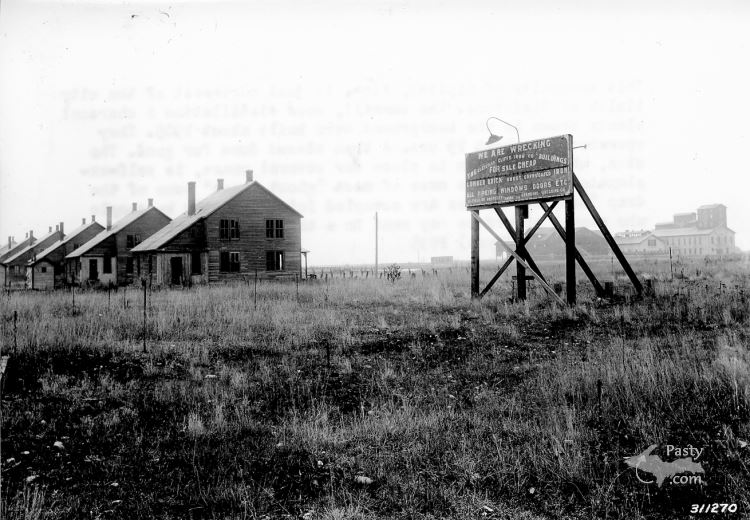By Kris Peterson (Kris) on Thursday, July 31, 2014 - 08:33 pm:
Thank you for the very interesting materials contained herein.
Like Kim Lake above, I too grew up in Kipling. It was a
wonderful place with many points of interest for children to
have fun, whether or not they were supposed to be doing the
activity and the place they did it. There was the Furnace
Grounds, formerly a steel plant and later a fuel storage facility
with large cement buildings and storage tanks. There were at
least three gas stations and grocery stores and a school. They
are all gone now. I grew up in one of the town houses. They
had four rooms upstairs and four rooms downstairs. They were
built with hardwood for all of the boards and nails were
apparently cheap because they used many more than would
be used in today's construction. My parents used to have a
boarding house there. The doors were unlocked and when
people came, they would check the board to see if any rooms
were available. If they found one available, they would take the
key and sleep in that room. Many times in the morning, if a
guest got up first, they would start the coffee and bacon. 40
years later my parents received mail from former guests from
all parts of the country telling them how much they enjoyed
staying there. Kipling had one major problem when I was
young and that was Norway Rats. They were in many of the
homes. At first, large steel traps were used but they were
dangerous to set and caught other animals not desired, like
skunks. We were thankful when D-Con came on the scene. It
was gross though because you would see enormously inflated
rats walking around town in the daylight before dying. Kipling
seems so different to me today when I visit it. Things change
and time moves on but I don't think you would ever find any
nicer people than lived there then or live there now.


